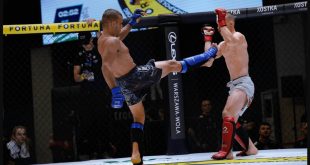
As the betting industry transitions further towards automated trading functions, how will this dynamic impact the make-up of sector enterprises and their decision making…
____________________
“We come not to bury trading, but to enhance it,” says Einar Knobel, chief executive and founder at odds-feed provider TXODDS.
He is talking how the automation of sports-betting trading rooms has advanced to the extent that, at least when it comes to Europe, the massed ranks of trading desks at the larger operators are now a thing of the past.
Trading desks have evolved. “It’s obvious the industry is now more algorithm-driven and automated than ever and that trend is only heading in one direction,” says Knobel.
It necessarily means a changing role for the human element. “The human trader was king but no longer,” is the way that Richard Thorp, business development director at sports backend supplier FSB Technology, typifies the transition that has taken place.
“For speed and accuracy, the algorithms win by an order of magnitude every time. And the gap is only widening, such is the doubling power of technological progress.”
Looking to his own product, Knobel says it gives his clients “the 30 thousand-foot view of the market” and suggests there is the potential to lose encumbrance of the trading room altogether.
“Our systems mean you can track exactly what you want,” he says. “You can look at weighted averages via our processes. You can alert yourself according to what other bookmakers are doing – spot any arbs or ricks – but also any deviation from the averages. We have cut out the latency.”
The pricing of the higher volume sports – football in particular but also increasingly tennis – is now completely handled by machines, says Mark Israney, a partner at gambling and sports-betting consultancy Propus Partners.
He suggests that core pricing sources, in-play incident feed data and derivative algorithms now come together to produce “market sets” that are far in excess of consumer demand. “This structure still tends to sit within larger operators’ systems, with smaller operators receiving the calculated prices from third-party price feeds or through their turnkey platforms,” he adds. “But regardless of size, it’s increasingly rare to see odds compilers with their form books, chalkboards and abacuses nowadays.”
The Human Touch
The march of the machines isn’t uniform, however, in the area of liability management, for instance, differences occur at an operator level, though as Israney points out this is also a platform issue.
“From a liability management point of view the levels of automation used vary significantly from operator to operator, or perhaps more pertinently, from platform to platform,” says Israney. “Many use simple alerting mechanics to highlight any selections (or combinations) which offer threats, however, the actions then required are typically manual.”
Knobel agrees that human intervention is still a necessary complement to whatever automated processes an operator has deployed. “There is still a role for trading desks,” he says. “But it’s enabling or making the process more automated and then giving more power to fewer people to run things. They can then refine their trading opinions. We are a technology-enabler; they have their years of experience and their own price data and their own models and we give them the ability to interact with the live market.”
Thorp points out that trading desks will become “assembly points” or the nerve centre where feeds, advanced pricing, modelling, scoring data, team and player updates and weight of money all come together to guide the central desks opinions.
“Corralling all these inputs and distilling precise answers for risk management and trading strategies remains the challenge, whether a human is at the controls, or merely overseeing the machine-learning equipment,” he says.
Does all this mean that the human element of the process is destined to be obsolete in the years ahead?
The human element will have a place for the foreseeable future, says Israney. “There will be a need for some kind of monitoring role for both the technical issues (feed errors; feed mappings) and exceptions,” he says. “We expect both liability management and indeed customer management to become largely automated, although not completely automated for some time.”
Of course, this might change if machine learning or the more advanced artificial intelligence makes further strides which, according to Thorp, has the potential to be “transformative.”
“Machine-learning promises generalisable tools which can adapt and improve their own programmatic code, giving operators the edge on the competition and a deep understanding of their customers,” he says.
This is all within reach, suggests Israney. “The promise of increased computing power will bring into range the types of algorithms that aren’t quite possible currently, again improving automation levels across all sports.”
It’s not science fiction. The money being spent on R&D on machine learning and AI in the wider technology area is beyond immense and as that fruits of that percolate through to the world of betting, the change being wrought will be profound. “These changes are happening as we speak in all walks of life,” concludes Knobel. “Betting will be no different.”
______________________________
The Betting industry’s future enterprise and operational context will be discussed at the upcoming ‘Betting on Sports Conference’ (#boscon2018 – Olympia London-17-20 September 2018). Click on the below banner for more information…










